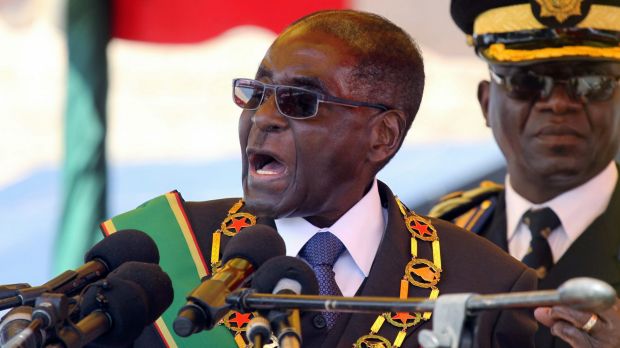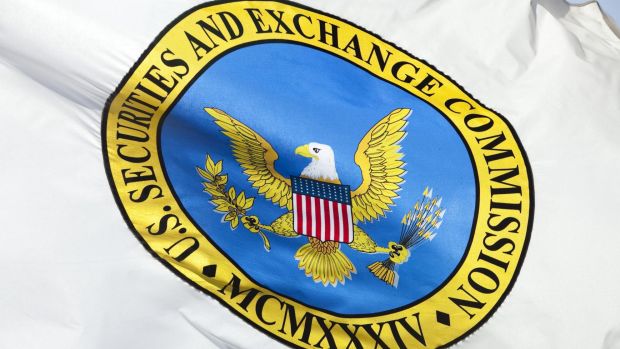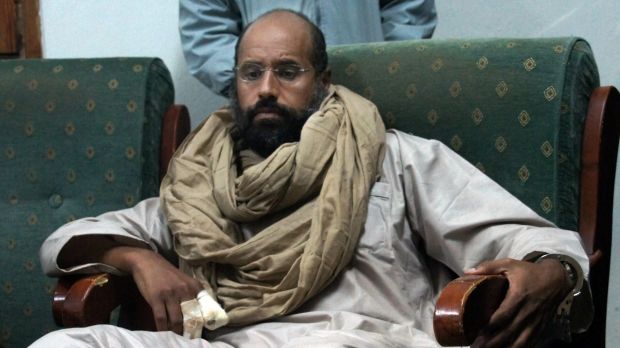This material belongs to: The Sydney Morning Herald.
It was March 2008 when an Australian banker flew into Harare International Airport as electoral unrest in the Zimbabwean capital threatened to boil over.
But Vanja Baros, a London-based employee of $US34 billion ($A43 billion) New York hedge fund Och-Ziff, was not involved with the latest trials of this broken country.

He was there to cut a deal with an executive from a London-based miner.
The executive had connections to government officials in the mineral-rich Democratic Republic of the Congo.
He was renowned as an “influential and dangerous man” who had been wanted for arms trafficking, fraud and bribery.
At the time the executive worked for notorious Israeli businessman Dan Gertler, the inspiration for the movie Blood Diamonds.
The deal Baros wanted to present, prosecutors now claim, was simple.
Och-Ziff’s African-focused investment funds would pump $150 million into Gertler’s company to be used for greasing government palms in the Congo.
The transaction would have huge consequences beyond the massive corruption case launched by the Securities and Exchange Commission (SEC) last year.
The SEC alleges Baros, along with his boss Michael Cohen, orchestrated $400 million-plus in bribes and “strategic investments” to secure government favours in no fewer than seven African countries.
A few months after the meeting with Gertler’s offsider, Robert Mugabe‘s machine-gun toting supporters were rioting to maintain his iron grip of the country.
Court documents reveal it was then Baros and Cohen received a worrying message from a South African businessman who was familiar with the deal.

Approximately $100 million of the company’s money had allegedly “paid 4 arms into zim and rented boat from China” to stamp out the support for Mugabe’s opponent Morgan Tsvangirai, according to a message that has surfaced in court documents.
It’s quite the place for a Melbourne-raised man who was then just into his 30s.
But it wasn’t just Mugabe who allegedly ended up with Och-Ziff investors’ cash. Monies arranged through the Och-Ziff alleged bribery scheme also flowed into the bank accounts of officials and agents.
That included Saif al-Islam Gaddafi, the son of then Libyan dictator Muammar Gaddafi.

In return for a series of secret payments allegedly orchestrated by Cohen and Baros, who between 2007 and 2013 worked at Och-Ziff as an analyst and director of its African investment arm, various agents worked their magic in securing government favours, including buying state-seized assets and lucrative mining rights in far-flung African mining locales.
The alleged payments then allowed Och-Ziff’s agents and associates to splash out on shopping trips to Paris, private jets and, in one case, a multi million-dollar super yacht.
Earlier this year, Och-Ziff forked out more than $US400 million in fines after admitting to breaching America’s Foreign Corrupt Practices Act.
Now the SEC is seeking individual penalties and disgorgement orders against Baros and Cohen in a case that could cost the men in excess of $100 million.
“Beginning in 2007 and continuing through at least August 2012, Cohen and Baros executed a sprawling scheme involving serial corrupt transactions and bribes paid to high ranking government officials in African countries, including the State of Libya, the Republics of Chad, Niger and Guinea, and the Democratic Republic of the Congo (the “DRC”),” the SEC alleges in an amended statement of claim filed earlier this year.
The alleged bribes secured a uranium mining licence in Niger, mining and oil exploration licences in Chad, state-seized mining assets in the DRC, mining assets in Guinea, a stake in an oil field off the coast of Conga-Brazzaville and a $300 million investment in Och-Ziff’s hedge funds from Libya’s state-owned investment authority.
“Cohen spearheaded and participated in all of the corrupt transactions. Baros began working with Cohen at Och-Ziff in 2007 and participated in multiple corrupt transactions that were part of the scheme,” the SEC alleges.
Further, it is alleged that Baros and Cohen omitted corruption warnings from external reporting agencies to get their deals past Och-Ziff legal. Other times, it is alleged, Cohen and Baros successfully lobbied senior Och-Ziff personnel to approve specific corrupt transactions.
Yet supporters of Baros argue he was just an analyst working under direction.
He ran spreadsheets and crunched numbers, they say.
He analysed deals and assets. He did not make deals. He did not pay bribes. He did not participate in any corrupt dealings. He will vigorously defend the case.
And the SEC version of events in Zimbabwe is understood to stand at odds with that of the Baros camp.
Far from a high-level meeting, Baros is believed to have met the man at an innocuous meeting organised by a resources analyst from a US investment bank.
And it is also important to note that the SEC has had some bruising court losses in recent years, particularly when they have litigated against individuals.
To defend him, Baros has hired a crack team of lawyers in New York from Cohen & Gresser, which has notched up some significant victories against the SEC most notably on behalf of trader Peter Black.
While much is known of Baros’ alleged activities in Africa, not much is known about Baros back in Australia.
Born in Bosnia in 1975, Baros appears to have spent his adolescent years in the eastern Melbourne suburb of Vermont South.
He graduated from the University of Melbourne in 1998 with a commerce degree before moving to Sydney.
Baros primed his knowledge of African business dealings while at Deutsche Bank‘s Australian arm where he specialised in natural resources investments and worked as an associate in the bank’s corporate finance division. In 2006, he took up a job as an analyst in Deutsche Bank’s London office.
UK company records show he lived in a townhouse in the flash Notting Hill area in London not far from the famed Portobello Market.
After joining Och-Ziff in late 2007, Baros’ primary responsibilities at Och-Ziff related to the management of two funds set up to invest in natural resources and mining assets in Africa.
The SEC alleges that investor money from these two funds facilitated the “sprawling scheme” set up by Cohen with the aid of Baros.
On leaving Och-Ziff in 2013, Baros continued to work in the mining investment game, including closely with Jan Kulczyk, a billionaire who up until his 2016 death was Poland’s richest man.
This included working at QKR Corp, a London-based mining investment company jointly owned by the Qatar Investment Authority and Kulczyk’s business interests alongside ex JP Morgan banker Lloyd Pengilly.
Baros was also director to two other mining vehicles controlled by Kulczyk including Africa-focused miner Loon Energy and Toronto-listed Serinus Energy until his resignation in 2016.
Baros was also listed as a director of the lifestyle advice and product platform Who Loves You, a business run by the daughter of Lloyd Pengilly, Marina, until his resignation in 2015.
Emails to Serinus, Kulczyk and Loon Energy from Fairfax Media went unanswered.
In the wake of the SEC allegations, Baros joins a line of Australian businessmen who are accused of breaching sanctions and breaking bribery and corruption laws.

Former Leighton executive Peter Gregg has been accused by the Australian Securities and Investments Commission of being involved in corrupt payments – an allegation he strenuously denies and is vigorously defending. Sundance Energy has also been subject to a corruption investigation over its dealings in Africa and Rio Tinto is also being probed over its dealings to secure the Simandou mine in Guinea.
Indeed, Israeli billionaire Beny Steinmetz, who has been locked in a legal battle with Rio Tinto over Simandou for years, seized on the alleged $25 million payment arranged by Cohen and Baros to the Guinean government as proof his business interests were robbed of the lucrative iron ore deposit.
Last month, Baros applied to have the matter dismissed on statute grounds that could see the matter dropped entirely or reduce the penalties Baros can face to zero dollars after a hearing in the coming months.
His legal team will also argue at the hearing that the SEC lack jurisdictional grounds over the alleged business activities of a London-based Australian citizen in African countries.
Baros’ lawyer Mark S. Cohen said in a statement: “Vanja Baros is a highly respected professional with an exemplary record of service and integrity. The allegations in the SEC’s complaint about Mr Baros are without basis. When the facts come out, it will be clear that Mr Baros did nothing wrong.”
 info@anticorr.media
info@anticorr.media

